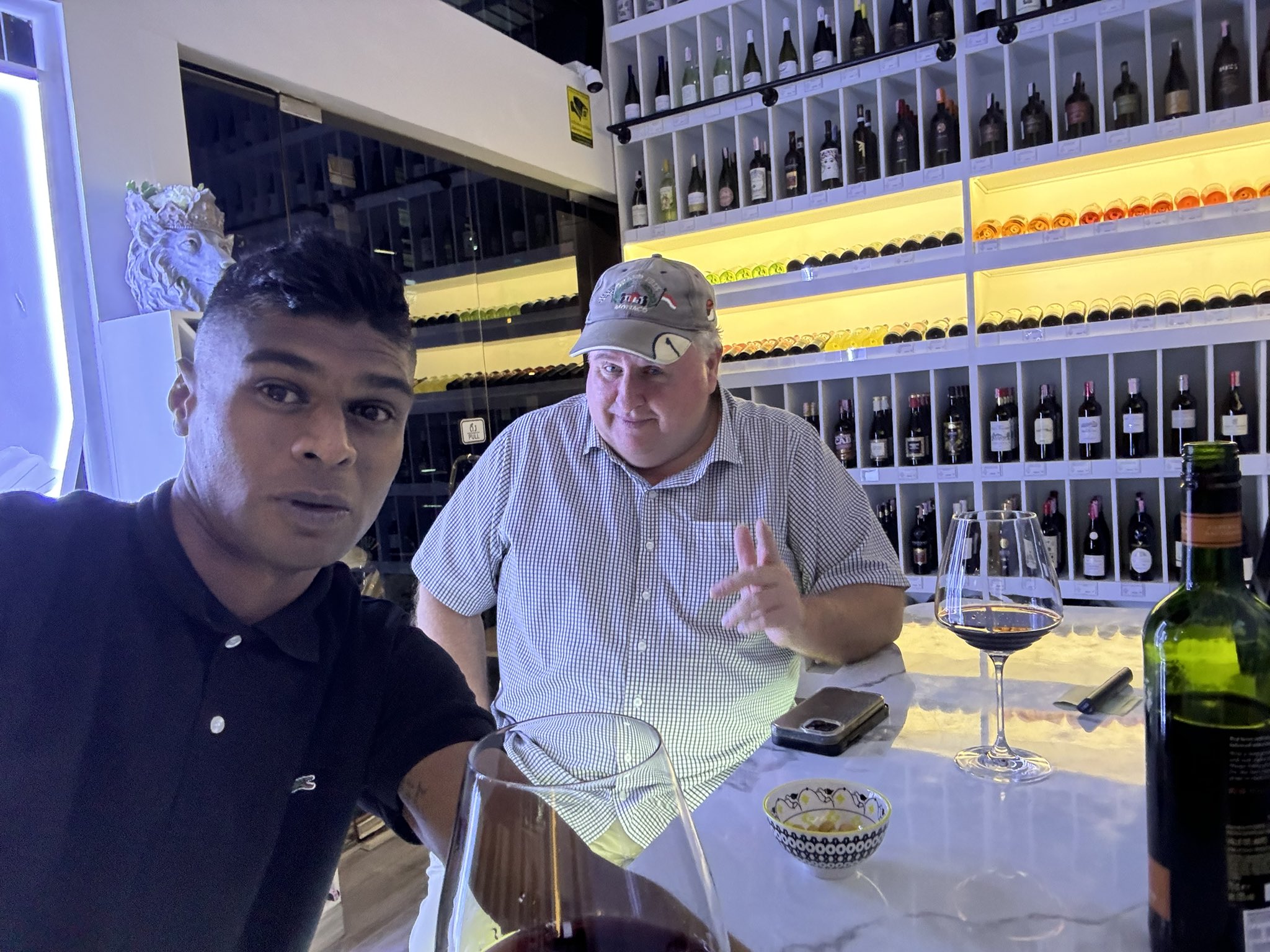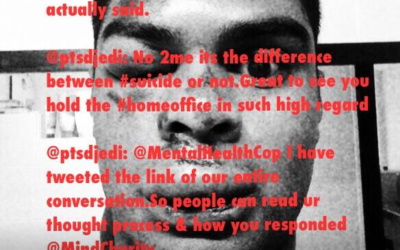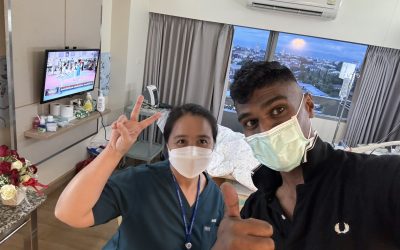To:
Jackie Lee
West London NHS Trust
Subject: Formal Complaint Regarding Sara Veeramah’s Conduct and Lack of Investigations by QI West London
Dear Jackie Lee,
I am writing to submit a detailed formal complaint regarding the online conduct of Sara Veeramah, Associate Director of Quality Improvement (QI) at West London NHS. This letter addresses my serious concerns about her role in suppressing public engagement on critical matters of institutional racism, as well as the broader systemic failure of QI West London to adequately investigate senior medical professionals whose involvement in this institution’s failures is undeniable.
Incident Overview: Social Media Misconduct
Recently, Sara Veeramah decided to hide my responses to her tweet from 11th October regarding #traumainformed care and #antiracism. This action was not only wildly unprofessional but also highly inappropriate given the role she holds within the Quality Improvement sector of West London NHS. Her decision to suppress my responses, rather than engaging with valid concerns, reflects poorly on her commitment to the values of transparency and patient care that her position demands.
Further, in addition to hiding my responses, Sara also restricted my ability to engage fully by deactivating the clickable links to both her personal account and the official @QIWestLondon account on my tweets. This deliberate action, intended to prevent the public from easily accessing these profiles, demonstrates an attempt to silence my voice and limit public accountability regarding serious matters of institutional racism and systemic failures within the NHS.
Comprehensive Documentation: The Long Trail of Evidence
It is important to emphasize that my case is well-documented from the very beginning, with records spanning multiple governments and institutions, including the Thai, Japanese, and UK governments. Following my diagnosis of PTSD after surviving the Boxing Day tsunami in Thailand, I endured five years of NHS neglect, during which my trauma was systematically dismissed. This neglect occurred despite my visible distress and repeated attempts to seek appropriate treatment and acknowledgment of the severe trauma I had experienced.
Additionally, my treatment at Oxford University was conducted under clinical trial conditions and was meticulously documented by leading experts, including Dr. Jennifer Wild. This substantial body of evidence should have triggered serious investigations into the systemic failures at West London NHS. However, despite this wealth of documentation, it took over five years for anyone at West London NHS to recognize the severity of my trauma and acknowledge the institutional failures I had faced. The refusal to take my trauma seriously during these critical years represents a major failure of care that should have been addressed through immediate and thorough investigations.
Failure to Investigate Senior Doctors and Mental Health Professionals: A Protected Network
A significant aspect of my concern lies in the failure of QI West London to conduct thorough investigations into the senior medical professionals involved in quality assurance, especially those who played a key role in addressing (or failing to address) systemic failures at the Trust. While Dr. Chris Hilton was not directly involved in my personal case, his prominent role in quality assurance and his seniority at West London NHS mean that he should have been subject to thorough scrutiny, given the well-documented failures that have affected not only myself but many other vulnerable patients.
What is particularly alarming is that the failure to trigger a serious investigation into systemic failures has, in effect, protected the careers of countless senior doctors, psychiatrists, and mental health professionals. Many of these individuals have continued to practice, unchecked, potentially perpetuating the very same patterns of negligence and misconduct that allowed cases like mine to occur in the first place. The ability of these professionals to continue practicing without consequence calls into question the effectiveness of the quality assurance measures in place at West London NHS, as well as the true intent of the QI department.
In my case, the five-year delay in taking my trauma seriously not only compounded my suffering but also protected those responsible for these failures from facing any form of accountability. It is reasonable to ask: how many other cases like mine have been swept under the rug? How many senior figures who were responsible for overseeing care have avoided scrutiny because of the systemic refusal to investigate serious claims of institutional racism and negligence?
Implications for Patient Care and Safety: A Continuing Risk
The actions of Sara Veeramah and the broader failures of QI West London have far-reaching consequences beyond my own case. By restricting my ability to engage with these public accounts, Sara has effectively silenced a voice that raises concerns not only for myself but for many other vulnerable individuals under West London NHS’s care. This includes my elderly father, who resides in Chiswick and relies on the care provided by West London NHS.
When public institutions like the NHS deliberately limit engagement on serious issues of systemic racism and medical misconduct, they jeopardize the safety and wellbeing of patients across the board. Vulnerable individuals, particularly those from minority ethnic backgrounds, who already face significant barriers to accessing adequate care, are further silenced and left without the necessary means to hold institutions accountable for their failures. This type of behavior only serves to erode trust in the NHS and perpetuates a dangerous cycle of negligence and harm.
Complicity in the Institutional Cover-Up: A Broader Issue
The actions of Sara Veeramah are not isolated but are indicative of a broader culture of avoidance and complicity within West London NHS. The decision to limit my engagement on social media and the refusal to investigate the systemic issues highlighted in my case raise significant concerns about the willingness of QI West London to address its failings. These actions reflect an attempt to cover up institutional shortcomings rather than engaging with them in a meaningful way.
It is worth asking: how many complaints have been subjected to thorough investigation by the QI department, and how many resulted in meaningful accountability? My case, which has garnered international attention, including a feature on the BBC World Service podcast, should have prompted immediate action. Instead, it has been met with obfuscation, avoidance, and a refusal to engage in genuine dialogue. The reluctance of QI West London to investigate senior medical professionals and their role in these systemic failures calls into question the entire framework of quality improvement at the Trust.
The Hollow Promises of Anti-Racism Campaigns: Lip Service
West London NHS has publicly committed itself to anti-racism, transparency, and trauma-informed care. However, these commitments appear to be nothing more than hollow promises when contrasted with the institution’s actions. Filing a complaint after one year is practically impossible due to procedural barriers, and the reluctance to investigate senior figures involved in documented cases of negligence exposes the hypocrisy of these public campaigns.
My case exemplifies how the Trust has prioritized protecting its public image over addressing real systemic issues. For an organization that claims to champion anti-racism, it is disheartening to witness how it has failed to act when presented with clear evidence of institutional racism and medical neglect. The failure of the QI department to investigate and hold accountable those responsible only underscores the deep-rooted nature of these problems.
Conclusion: Request for Immediate and Thorough Action
I am requesting an immediate and thorough investigation into the conduct of Sara Veeramah, her role in restricting public engagement, and the failure of QI West London to investigate senior medical professionals whose involvement in systemic failures has gone unchecked. I also request full transparency regarding how many cases have been investigated by QI West London that have resulted in meaningful public accountability, such as the BBC World Service podcast that highlighted my case.
West London NHS must be held accountable for its failure to investigate critical cases of institutional racism, and the conduct of senior figures like Sara Veeramah must be scrutinized to ensure that the principles of transparency, quality improvement, and patient safety are upheld. I demand a formal written response confirming that my complaint will be investigated, along with a clear outline of the steps that will be taken to address these systemic issues.
Sincerely,
Sam Nilaweera





0 Comments